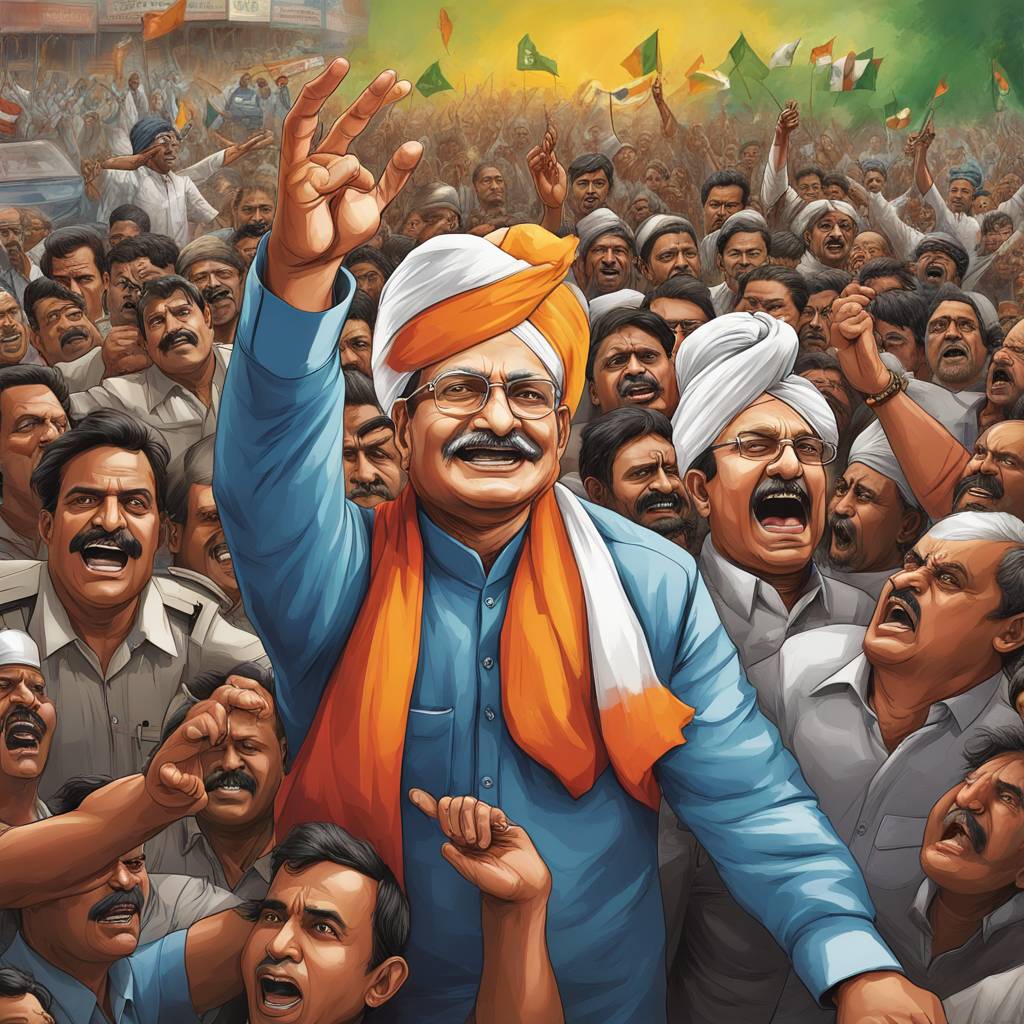The arrest of one of India’s top opposition leaders, Arvind Kejriwal, has drawn attention to accusations of “match fixing” by Prime Minister Narendra Modi’s government in the upcoming national elections. Kejriwal, the leader of the Aam Aadmi Party and Chief Minister of New Delhi, was arrested on corruption charges, which he denies. The court extended his detention for two weeks, keeping him behind bars until April 15. The case has become a focal point ahead of the national elections on April 19, where Modi will be seeking a third term in power.
The federal enforcement directorate alleges that Kejriwal was the “kingpin” in a corruption scheme that involved his party and ministers accepting bribes from liquor contractors. The amount was reported to be one billion rupees. Kejriwal has dismissed the accusations as politically motivated and accused the agency of manipulating investigative agencies. The Aam Aadmi Party has also denied the charges, vowing to fight the case in court while Kejriwal continues to serve as Chief Minister of New Delhi. Another prominent opposition leader, Hemant Soren of the Jharkhand Mukti Morcha party, was arrested earlier in connection with a money laundering investigation and also denies the charges.
The arrest of Kejriwal and Soren has sparked criticism from the opposition, with Rahul Gandhi of the Congress Party accusing Modi of “match fixing” and undermining the opposition’s ability to contest elections. Gandhi claimed that Modi’s government has placed its own people in key positions, targeted opposition leaders through law enforcement agencies, and pressured the judiciary. The BJP denies these allegations, stating that the agencies act independently, and called on the election commission to take action against Gandhi for his remarks. The India Alliance, consisting of parties like the AAP, JMM, and Congress, has emerged as a significant challenger to the ruling Bharatiya Janata Party.
The arrest of Kejriwal and Soren and the subsequent accusations of political interference have intensified the political climate in India ahead of the national elections. The opposition is rallying against what they perceive as government attempts to stifle dissent and weaken their ability to compete in the elections. Modi’s government, on the other hand, maintains that law enforcement agencies are operating independently and denies any allegations of foul play. The developments surrounding these arrests highlight the high stakes and intense competition in Indian politics as the country prepares for a crucial electoral contest. The outcome of the elections will have significant implications for the future direction of India and its governance.








